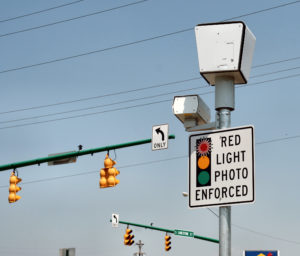A newly appointed judge presiding over the James Holmes murder trial agreed to release a trove of previously sealed documents which shed light on what the University of Colorado knew and when about Holmes’ mental condition prior to the massacre. The case involves the slaying of 12 people and injuries to dozens more after a shooting at an Aurora, Colorado movie theater during the opening night of “The Dark Knight Rises.”
Documents recently released by District Judge Carlos Samour, showed that, contrary to what University officials initially said in the aftermath of the shooting, they did have warning about Holmes’ mental instability. An affidavit by a university police officer, Lynn Whitten, revealed that Holmes had spent time under the care of university psychiatrist Dr. Lynne Fenton. The officer’s affidavit detailed how Fenton contacted campus police in accordance with her legal requirement to report threats to authorities. The affidavit said, “Dr. Fenton advised that through her contact with James Holmes she was reporting, per her requirement, his danger to the public due to homicidal statements he had made.”
Dr. Fenton apparently became disturbed by Holmes’ behavior, especially several comments he made about fantasizing killing large numbers of people. Dr. Fenton grew alarmed with what she saw as Holmes’ deterioration and his aggressive behavior towards her following the termination of their therapy sessions. Dr. Fenton was troubled enough that she reached out the school’s behavioral evaluation and threat assessment team in early June, more than a month before the July 20th mass shooting. Dr. Fenton also contacted campus police in accordance with what she thought were her legal and ethical obligations.
Sadly, the warnings by Dr. Fenton fell on deaf ears and the University of Colorado took no further action. The records show that no one from the school contacted local officers and the threat assessment team did nothing because Holmes had announced his intention to leave the doctoral program after failing an important oral examination.
The law in Colorado, found in Colorado Statutes § 13-21-117, is clear that therapists owe a legal duty to warn others when they are aware or have a reasonable suspicion that a patient may harm another person. This represents one of the very few situations where a therapist is permitted to break doctor-patient confidentiality. Not only is such a breach of confidentially permitted, it is required and a failure to do so opens the therapist up to possible civil lawsuits from victims and, in certain cases, criminal prosecution.
In order for therapists to break confidentiality, their patient must first make a threat against a specific and identifiable person. Second, the therapist must also believe the threat to be real based on their patient’s history. It seems clear that Dr. Fenton did believe there was a chance Holmes could present a danger to others and took action to have him reported to the proper authorities. The question that remains is whether the University of Colorado can be held responsible for failing to take action.
Colorado has only partially waived the state's immunity from tort lawsuits including injuries or wrongful death claims under what is known as the Colorado Governmental Immunity Act, which has a monetary cap on such individual claims, and a cap on the total amount of combined claims for one occurrence –something that is especially relevant to the movie theater shootings. Moreover, it appears that the state law includes a provision that requires relevant claims be proved to a “willful and wanton" negligence standard, which makes such claims even harder to win.
Likewise, Virginia has a state tort claims act, as do most states, setting forth restrictions on such injury and wrongful death actions against the state or its agencies and entities. The Virginia Tort Claims Act (VTCA) limits a plaintiff's damages to one hundred thousand dollars ($100,000) or the maximum limits of any liability policy maintained to insure against such negligence, whichever is greater.
Despite the difficulties associated with limitations on governmental liability, attorneys seem to think there’s a chance the school can be held responsible. So far, 20 separate tort claims have been filed against the University of Colorado, each alleging that the school failed to do enough to prevent the massacre that occurred later. Though it remains unclear exactly how much school officials knew about Holmes prior to the shootings, the latest documents do indicate that they had knowledge that he was potentially dangerous. Three days after the shooting, campus spokesperson said, “To the best of our knowledge at this point, we think we did everything we should have done.” It seems clear now that was not the case.
About the Editors: The Shapiro, Lewis & Appleton & Favaloro personal injury law firm, which has offices in Virginia (VA) and North Carolina (NC), edits the injury law blogs Virginia Beach Injuryboard, Norfolk Injuryboard and Northeast North Carolina Injuryboard as pro bono services.









Comments for this article are closed.